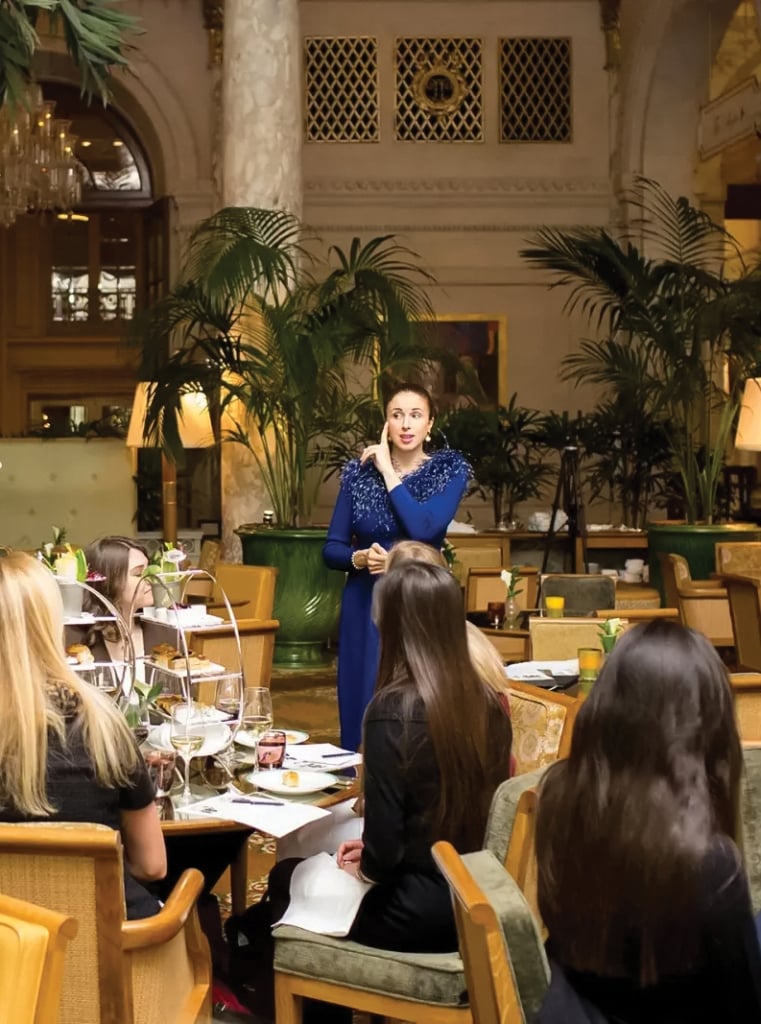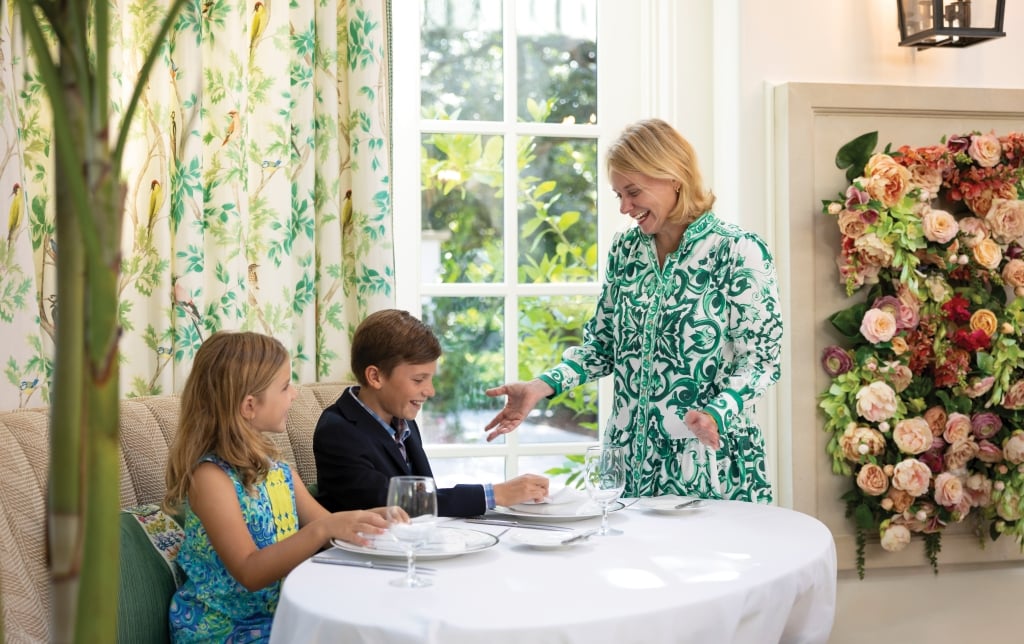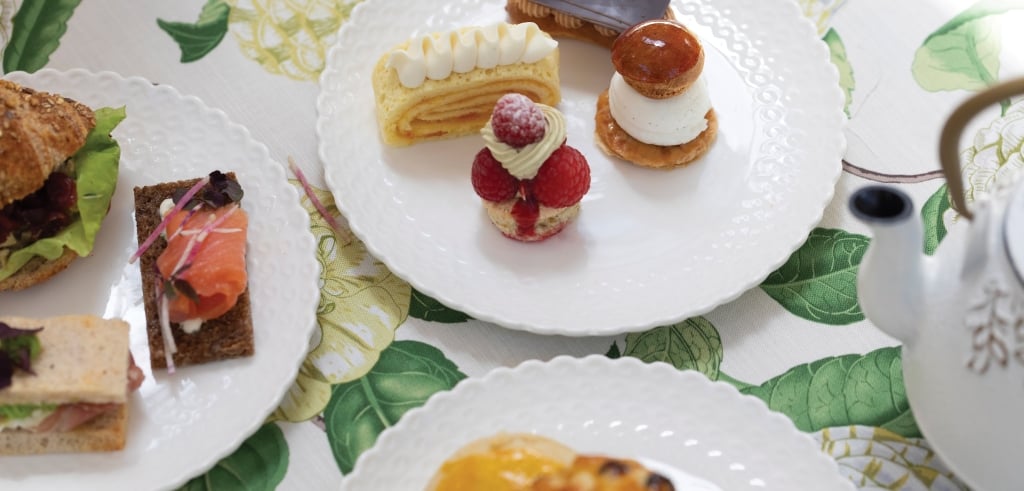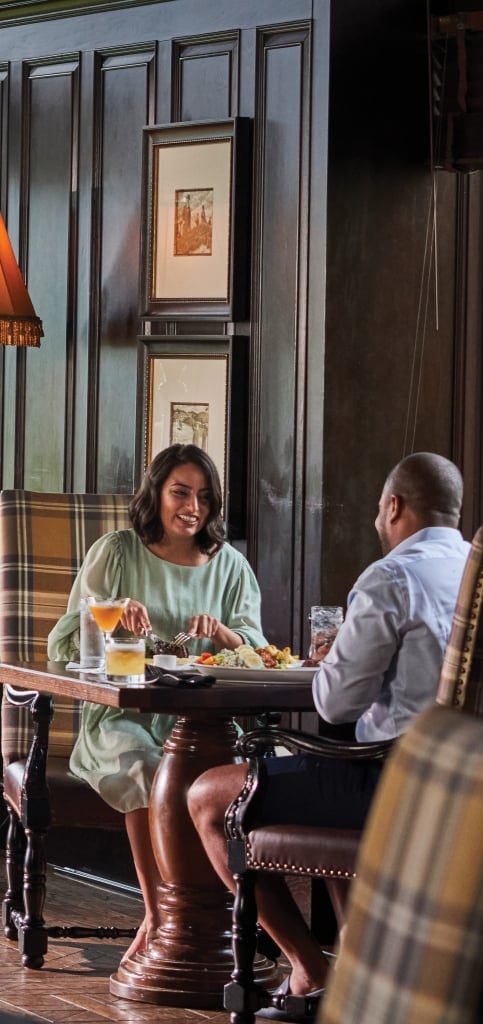The New Era of Etiquette
A universal language of respect, spoken through intentionality.
In an age defined by digital distraction, society is quietly returning to something more enduring — the art of intention grounded in kindness. Etiquette, once seen as rigid or outdated, is reemerging as a meaningful expression of care. A handwritten note, a thoughtfully set table and a well-timed RSVP are no longer relics of the past. They are quiet revolutions. In a world that moves quickly, these small, deliberate acts speak volumes. They say, “I paused for you because I care about you.”
 ETIQUETTE AS EMPATHY
ETIQUETTE AS EMPATHY
Across the globe, etiquette continues to serve as a universal language of respect, subtle yet powerful in the way it fosters connection. India Hicks, Philanthropist with The King’s Trust, believes that “Respecting time zones, pronouncing names correctly and understanding the cultural greeting of a new environment serves as a modern passport.” This respectful understanding can transcend a basic introduction into a considerate acquaintance.
In Japan, offering a gift with two hands is an expression of humility and care, often accompanied by a gentle bow that signals deference. In France, greeting family, friends and colleagues with a kiss on both cheeks, known as la bise, is a standard greeting method equivalent to a handshake or hug. In the United Arab Emirates, addressing someone by their full name and title not only shows respect but also reinforces the importance of identity and tradition within a communal framework. Across cultures, these practices have evolved not to exclude, but to bring people closer together, creating clarity, ease and a sense of belonging in shared moments.
Etiquette is rooted in the belief that kindness is always at the core. It isn’t about achieving perfection, but about cultivating presence. The goal is always the same: to inspire connection, navigate through kindness and show care to those around you.
Diane Gottsman, Etiquette Expert and Owner of The Protocol School of Texas, contributes meaningfully to the broader conversation, connecting etiquette with emotional intelligence and everyday awareness. As Gottsman puts it, “Knowing what to say, wear and how to conduct ourselves not only opens many doors, but also puts us at ease and brings out the best in us.” She frames etiquette not as an archaic rulebook, but as a practical skillset for building confidence, whether in the boardroom, at a dinner party or while navigating digital spaces. For Gottsman, manners are more about intentionality and allowing others to feel seen, heard and valued.
India Hicks is the goddaughter of King Charles III and she is known for her coastal sensibility and for hosting events all over the world for decades. She similarly champions the idea of effortless refinement. She advises hosts to “cheat,” suggesting that embracing simplicity, whether by ordering takeout, accepting guests’ contributions or letting go of the idea of the perfect meal, is what truly elevates hospitality. Hicks’ philosophy mirrors a broader cultural shift that gatherings today are often about warmth over polish, with mismatched plates, seasonal flowers from the garden and a playlist made on the spot.

A modern etiquette class with Myka Meier.
AN AMERICAN COASTAL RESURGENCE
In the United States, intentional living reveals itself vividly along the East Coast. Destinations that were once a purely seasonal retreat now serve as year-round cultural enclaves for city dwellers escaping to leisure and tradition. In these settings, gatherings are thoughtfully tailored with printed menus, matching flatware, gentle surprise elements and small gestures that delight guests.
At Sea Island, this sensibility is woven into the cultural fabric. Southern hospitality is not a performance. It is a daily practice of kindness and respect. There is a deeply embedded reverence for civility that can be seen in the way neighbors greet one another or how conversations end in well wishes for a great day. Afternoon tea becomes an occasion to slow down, with each element — from a held door to a remembered name or a handwritten note — serving as an extension of thoughtfulness.
Etiquette As Experience
Sea Island offers an immersive experience in intentional elegance. The rhythm of daily life and unhurried conversations creates a natural space for presence. Here, members and guests are invited to step away from the noise and reconnect not only with others but with themselves. Every detail, greeting, moment of eye contact and act of service conveys a sense of being valued. It is a place where kindness is practiced quietly but consistently, and where etiquette is not performative but purposeful.

Jennifer Daniel leading Mini Manners at Sea Island.
What distinguishes Sea Island is not just beauty, but the gracious living lifestyle. Etiquette isn’t imposed; it’s embodied. A beachfront supper feels as considered as a black-tie affair, and team members anticipate needs with care. Here, etiquette is not an accessory. It shapes how the community interacts, how they host and how they depart, with gratitude, grace and a renewed sense of presence.
PRESENCE OVER PERFECTION
“This cultural shift is a realignment with meaning, not a return to rigidity. Etiquette today is less about getting it right and more about getting real,” says Hicks. It lives in thoughtful details such as a confident handshake, a host adjusting a menu for dietary needs and sending a written thank-you that lingers long after opening.
Now, these courtesies extend into digital spaces. Digital etiquette is as vital as in-person manners, with a focus on replying promptly to emails, keeping texts warm and concise and knowing when to pick up the phone instead of sending another message. A timely reply, or a short acknowledgment, serves as a signal of respect for the other’s time while conveying professionalism and care. “The medium should match the message. A quick ‘running five minutes late’ belongs in a text. An invitation to celebrate a milestone? That deserves more,” Hicks exclaims.

High Tea in the Orangery.
In our “always on” world, attention remains a powerful courtesy, and balance sits at the core of this concept. “Social media can be dazzling but also depleting. Etiquette now means knowing when to share and knowing when to protect special moments,” Hicks details. Pausing to form a thoughtful response and employing consideration prior to posting embody presence over distraction. Even quick digital exchanges gain warmth through using names, courteous tones or simple acknowledgments.
Understanding etiquette evokes confidence while navigating everyday endeavors, so focus can be put on the present, no matter the setting. It is a practice of kindness and care rather than just a set of guidelines. Practicing active listening by putting away phones, making eye contact and avoiding interruption remains an important common courtesy. Following up with a short, thoughtful note, whether handwritten or via email, deepens connections and leaves a lasting impression. These small courtesies require little effort yet carry great meaning, forming the fabric of respectful connection and allowing one to move through life with intention and ease.

THE QUIET POWER OF THOUGHTFUL GESTURE
In a society that often prioritizes speed over substance, etiquette offers an elegant alternative to pause, reflect and engage.

Oak Room at The Lodge at Sea Island
Digital communication requires interaction with extra care due to its strong influence on everyday life. In tricky conversations, such as when canceling plans, a short but explanatory message can be powerful in providing closure and kindness to others. Acknowledgment of the inconvenience, coupled with an attempt to reschedule, is an appropriate method for changing arrangements.
Modern courtesy also shows up in less obvious places, such as leaving online reviews after experiencing great service, tipping fairly and consistently in a society where service norms are changing or muting your microphone in a virtual meeting to let others speak without interruption. These seemingly small choices create an atmosphere of respect.
When we feel equipped with tools for thoughtful engagement, whether face-to-face, across a dinner table or through a screen, we carry ourselves with greater ease. Etiquette becomes the foundation from which connection grows and confidence is built, allowing one to move through life with intention, grace and genuine care.
LOOKING AHEAD
As we enter a new era of etiquette, it is not a return to the past, but a refinement of the present. We are seeing a cultural desire to live more thoughtfully and to lead with grace. In a world that often feels hurried and fragmented, etiquette is a deliberate choice to slow down, to honor others and to show care in both the grand gestures and the smallest details.
In embracing the practice of kindness, the power to make every interaction an opportunity to uplift, connect and leave the world a gentler place is reclaimed. This movement — global in reach, coastal in character and deeply human in its expression — highlights etiquette not as a rigid code, but as a way of life that cultivates clarity, kindness and confidence.




